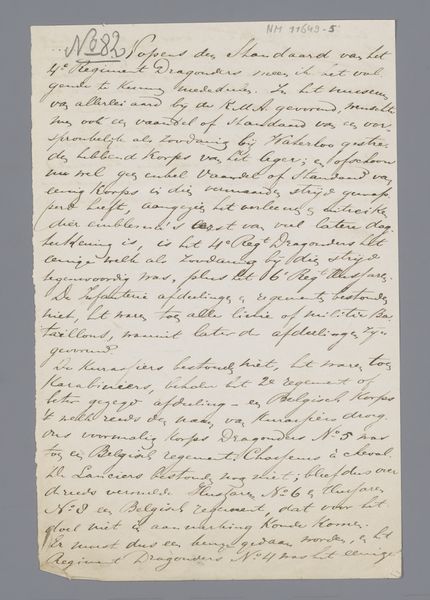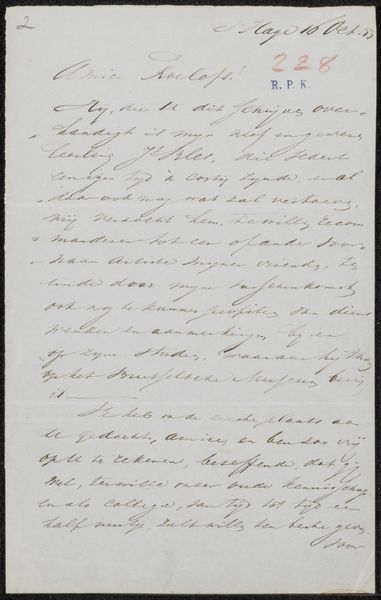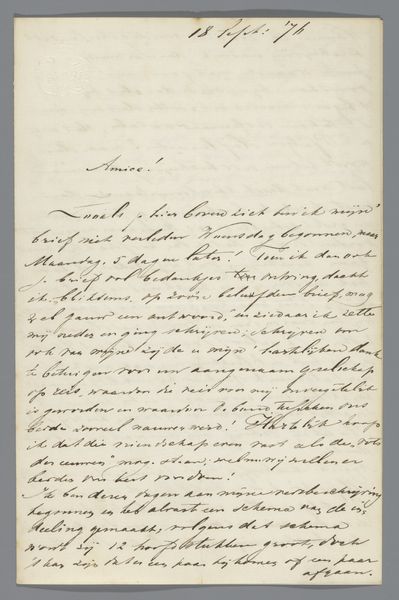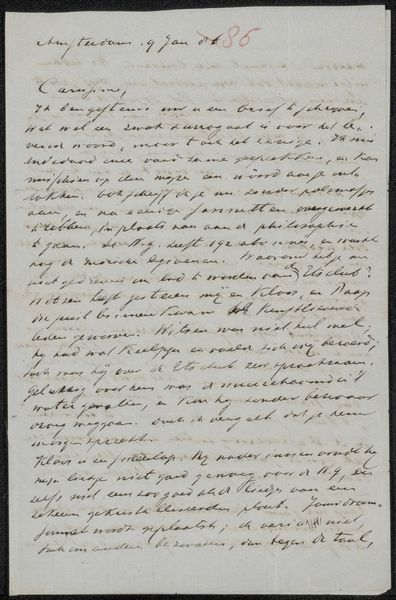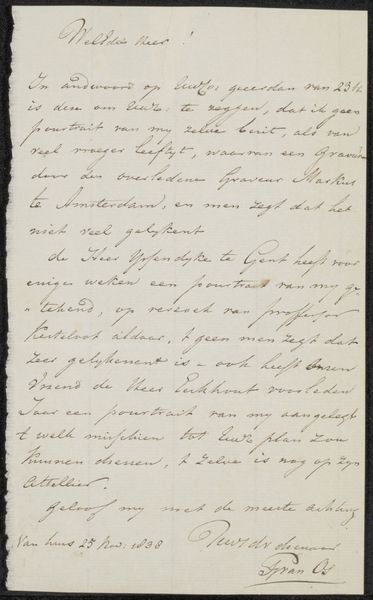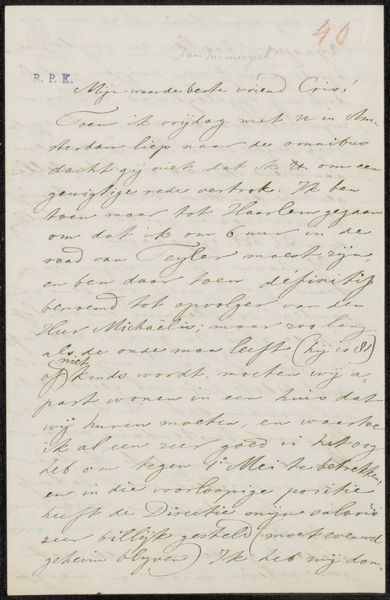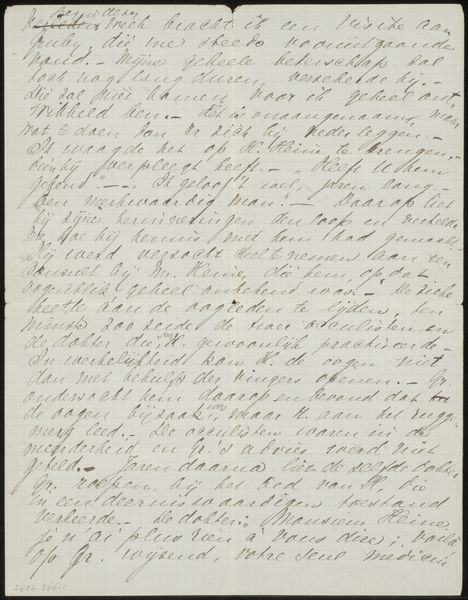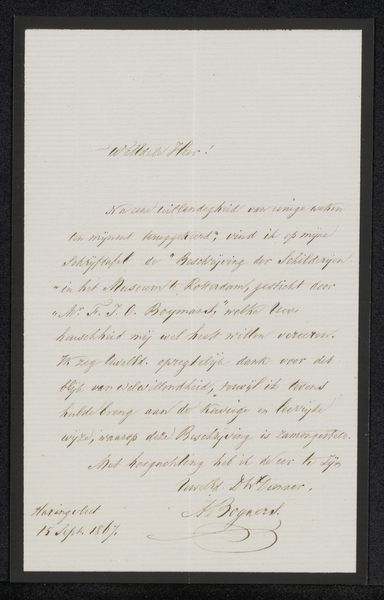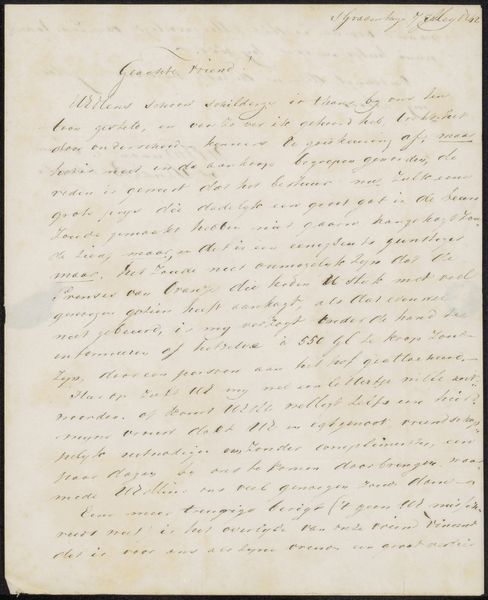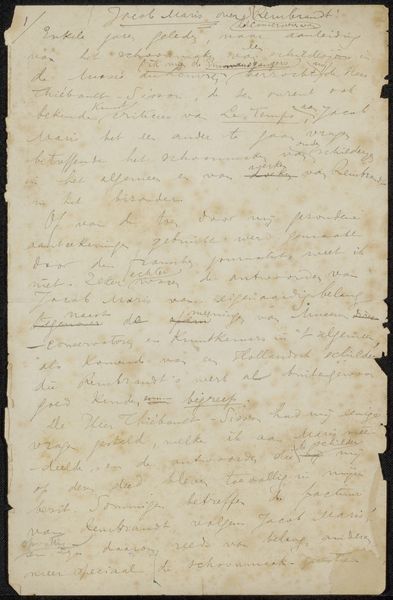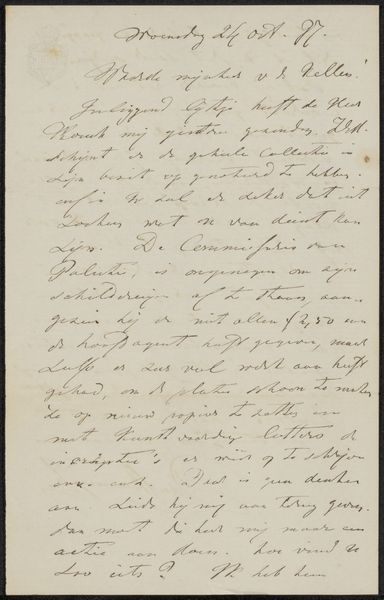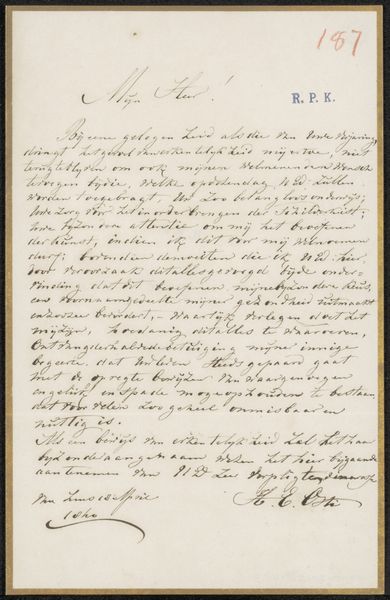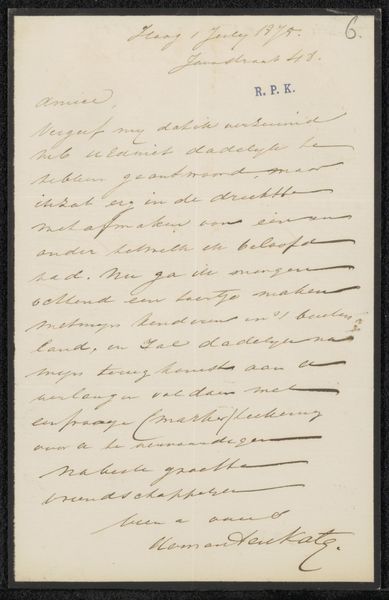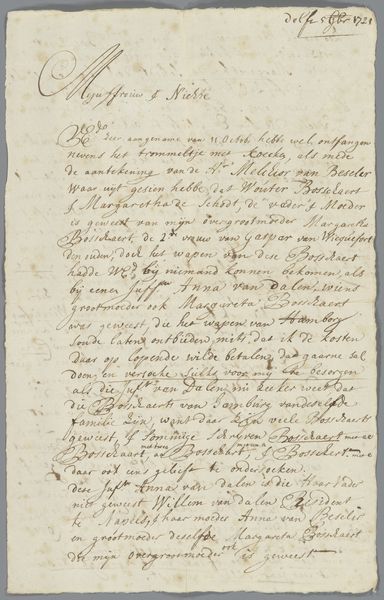
drawing, paper, ink
#
portrait
#
drawing
#
paper
#
ink
#
history-painting
#
modernism
#
calligraphy
Dimensions: height 32 cm, width 20 cm
Copyright: Rijks Museum: Open Domain
Curator: Let's delve into this fascinating document titled "Testament van William Leckie," thought to be from 1822. Crafted with ink on paper, this piece seems more than a simple note; it is a will of sorts by William Leckie. Editor: My first impression is of intricate formality; it’s not just a handwritten document, it’s carefully inscribed, line after line, dense with text. The weight of each stroke in the calligraphy suggests a careful consideration of the words being written, doesn't it? Curator: Indeed. Examining the handwriting style alongside the details, one begins to consider its connection to the socio-economic contexts of the early 19th century. William Leckie, identifies himself as a merchant residing in Paramaribo, a colony of Surinam, formerly Dutch Guiana. He uses this document to make financial provisions for family and the church in case of death, explicitly expressing control over who can touch his estate, specifically excluding “The Heirs of Orphan Member.” This could highlight potential tensions within the colonial society or perhaps his family dynamics. Editor: Absolutely. But beyond its historical weight, the visual rhythm of the calligraphy, the looping ascenders and descenders, it creates a texture that’s visually engaging. Note how the ink varies in darkness, revealing the pressure applied by the writer, conveying a very human, tactile presence. Curator: Certainly, that contrast emphasizes that historical tension between legality and mortality. The document mentions his sister Sophie Leckie serving as guardian, making stipulations about his daughter marrying and maintaining control over his estate. These power dynamics, seen through the lens of family, wealth, and the era's societal norms, offers complex, layered insight into Leckie's social position and the roles assigned within his community. Editor: What interests me most, in looking beyond Leckie himself and into the creation of this item, is how even a legal document reveals the subtle elegance that writing can attain when penned carefully. How intention, clarity, and a need for record also created a sort of performance in ink and pressure upon the paper. The visual echoes this somber moment, wouldn't you agree? Curator: Precisely, seeing it from both viewpoints creates that well-rounded understanding, appreciating its historical gravity while observing the finer details of the artistic choice in producing the record. Editor: An unusual, potent combination indeed.
Comments
No comments
Be the first to comment and join the conversation on the ultimate creative platform.
